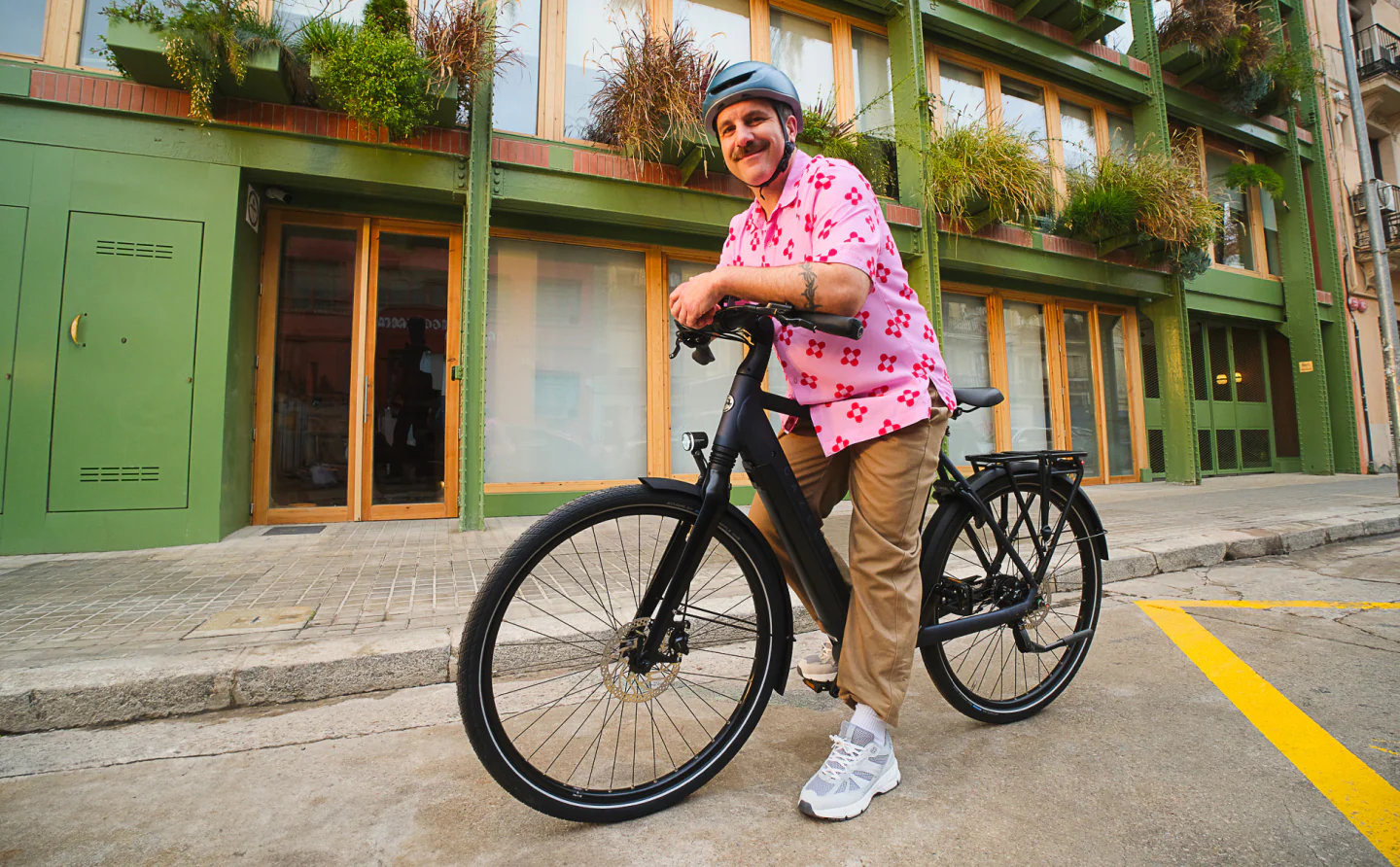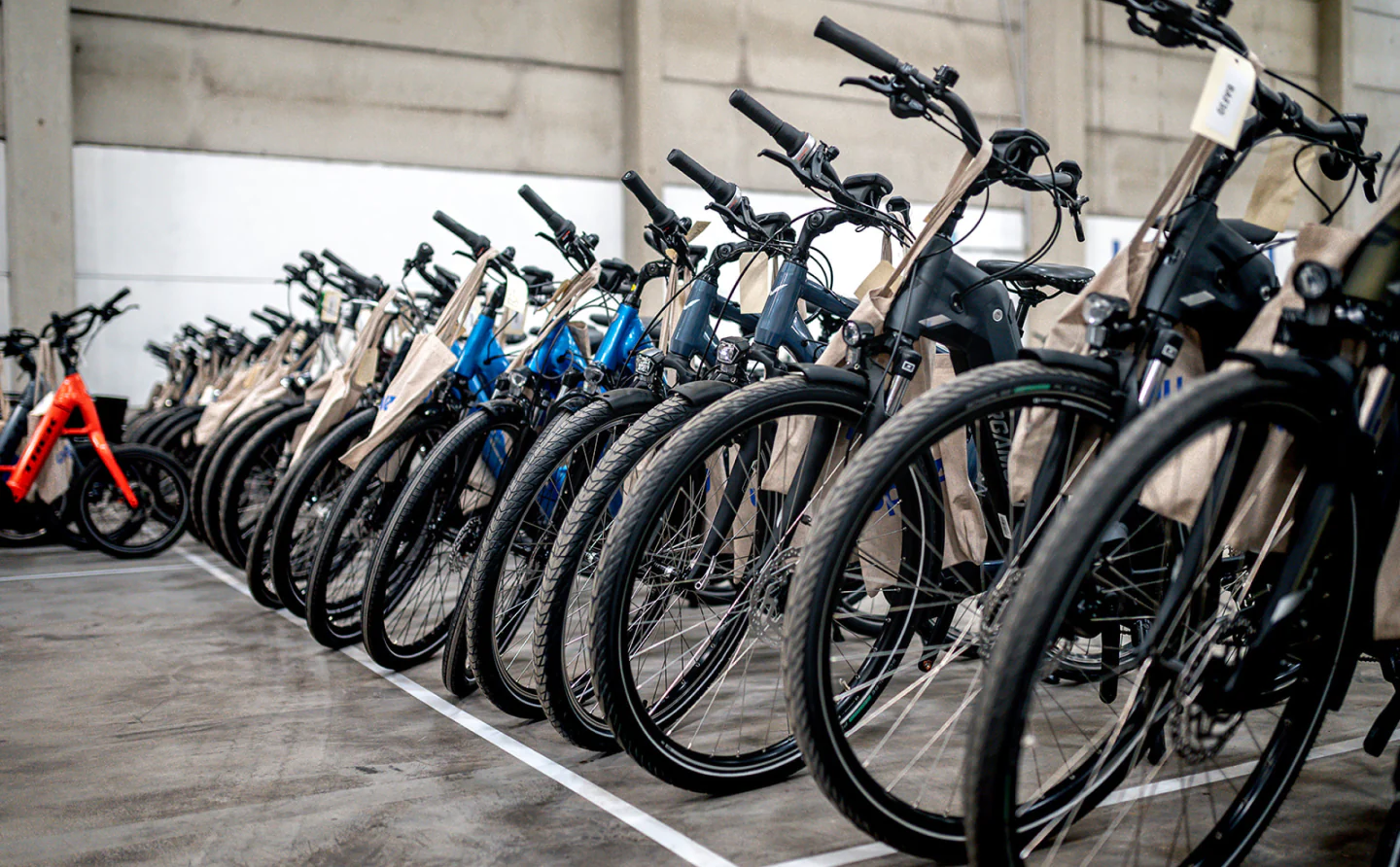E-bikes can be a great, environmentally conscious way to get around — and while they are not exactly cheap, they are definitely a whole lot cheaper than buying and maintaining a car.
So one Reddit user was understandably pretty upset when they found out that their condo's HOA had banned the storage of e-bikes in and around the building.
"The HOA just passed a rule that e-bikes aren't allowed to be stored in the bike garage because of their size and we aren't allowed to keep them in our condos because it will track dirt into the building," they wrote. "No ordinance was passed restricting traditional bikes in any way."
They went on to explain that "like most HOA boards, mine is made up of older folks that haven't caught onto e-bikes yet, and likely never will."
E-bikes tend to be both bigger and heavier than traditional bicycles, weighing 40-50% more than their solely leg-powered counterparts, according to Easy E-Biking.
"An average electric bicycle weighs around 45-50 pounds (18-22 kg). A typical traditional non-electric bike may weigh around 30-35 pounds (12-13 kg)," the outlet explains.
Naturally, this is because e-bikes are fitted with a motor and a battery that make pedaling a breeze, which is why e-bikes are far more optimal for longer commutes, especially ones where you wouldn't want to show up sweaty and out of breath.
Unfortunately for this Redditor, their HOA's new ban only leaves them one less-than-desirable place to park their e-bike.
"The only option for storing e-bikes is now to use a bike rack on an outside edge of the parking garage that is near the entrance of the property and exposed to rain, which would damage the batteries and motor," they wrote. "Several bikes were stolen from this rack last night, and I'm feeling really sketchy about locking up my $2,000 bike there, as it would likely be the most attractive target."
Luckily, their fellow Redditors had some suggestions for the next actions to take, although no perfect solutions presented themselves.
TCD Picks » Upway Spotlight

"If I were you, I would look into state laws that have to do with e-vehicles," wrote one commenter. "I am suggesting this because I have some experience with HOAs in FL where they can't forbid by law anything that's good for the environment. Ours tried to restrict solar panel placement and things you could do with your lawn. I know it's not the same but it's where I would start if it were me."
"Review your CC&Rs, make sure they have the authority to create this rule," another commenter suggested. "If they do, then run for the board. It's less work than you think."
Is there a fire risk with e-bikes?
Another concern regarding e-bike storage not mentioned in the Reddit post may have been e-bike fires, which, while exceedingly rare, can and do occur.
As the e-bike and e-scooter markets continue to expand exponentially in the U.S., incidents involving such devices have increased, too.
Lithium-ion battery fires are often caused by batteries that have been modified or repaired by untrained technicians, as Electrek explains. One notable New York City e-bike fire in 2022 was caused by what authorities believe to have been a resident running an unauthorized battery repair business out of his apartment unit.
In March 2023, NYC passed a law regulating e-bike safety measures, ensuring that any "micro-mobility device" like an e-bike or e-scooter meets the stringent standards set by UL Solutions, an industry leader in battery technology, ABC News reported.
How can I use an e-bike safely?
There are some simple ways to reduce the risk of fire and ensure safe storage and maintenance of electric devices.
Ensure the product is certified by a credentialed testing laboratory, like UL Solutions, and invest in a quality battery and charger. While it may be tempting to cut costs by opting for bargain products, these cheaper, off-brand items have a greater chance of overcharging and overheating a bike, which can lead to fires.
When dealing with an e-bike battery, it's absolutely essential to adhere to the guidelines provided by the manufacturer, including instructions on charging, storing, and maintaining.
And, of course, if a battery becomes damaged in any way, contact the manufacturer directly for assistance instead of trying to fix it yourself or via a third-party vendor.
Join our free newsletter for easy tips to save more, waste less, and help yourself while helping the planet.














